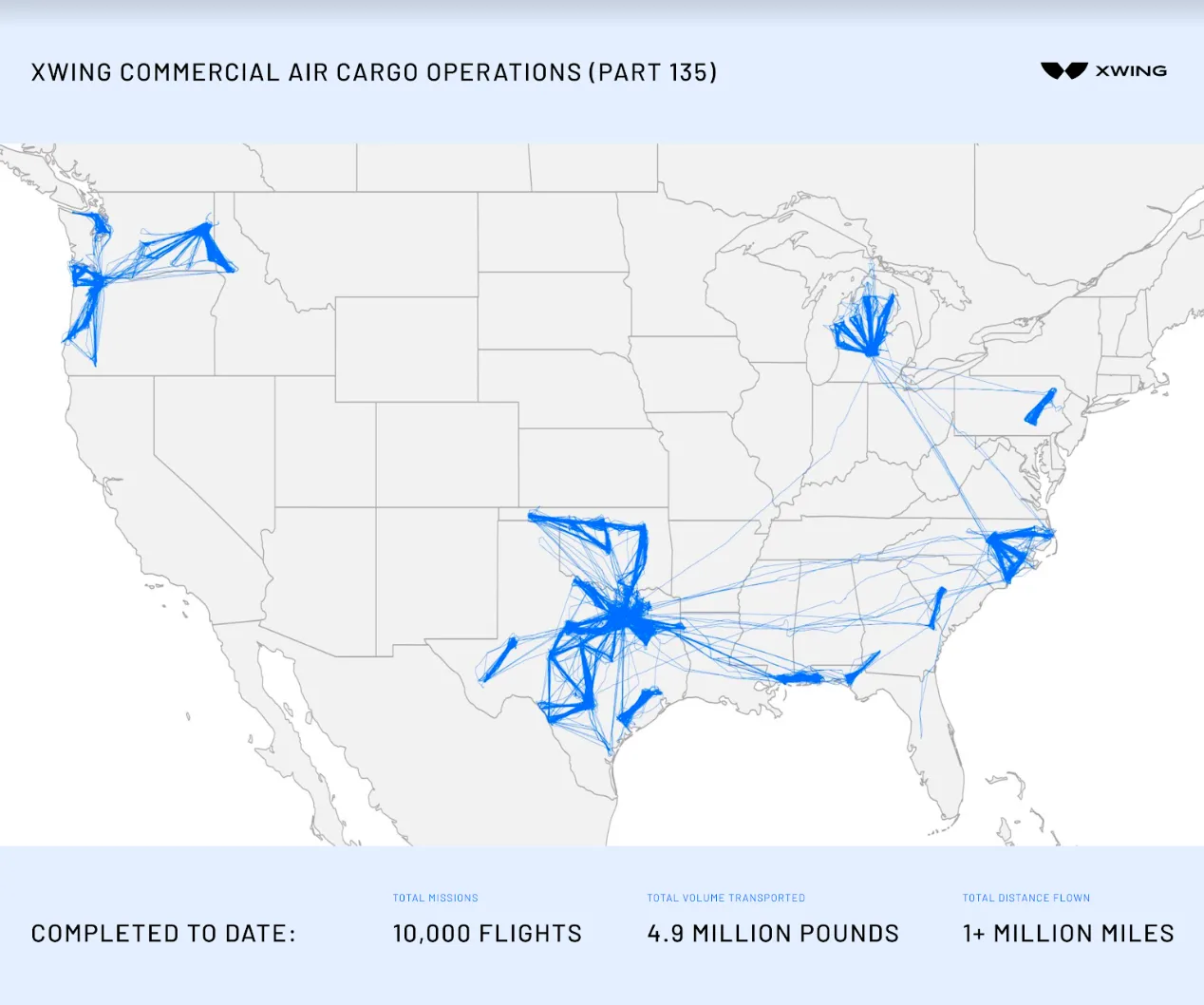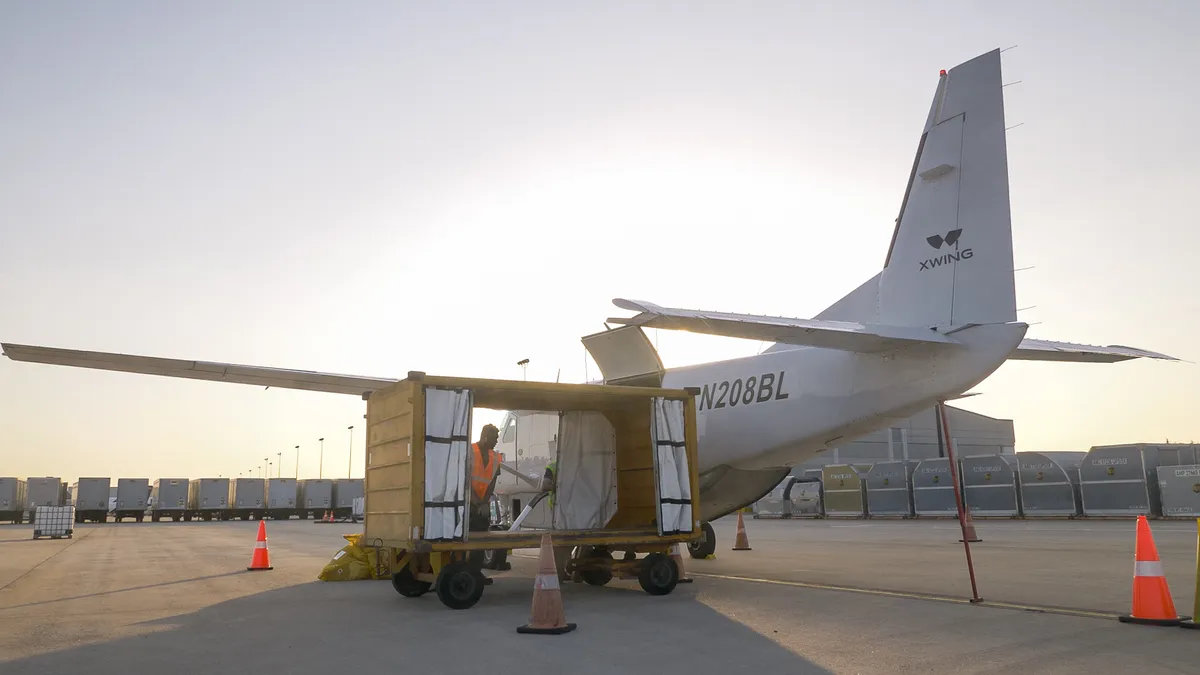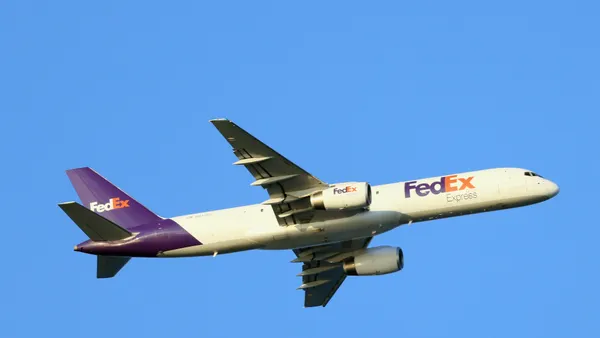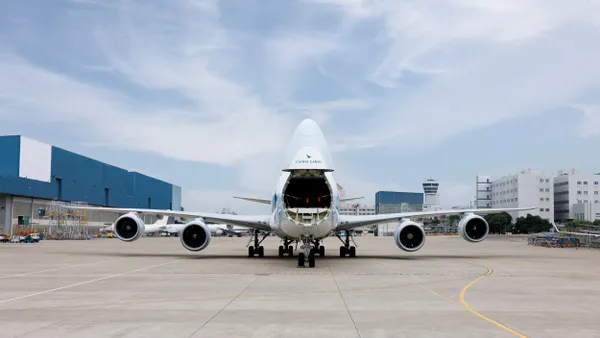Dive Brief:
- A UPS-contracted air cargo carrier has expanded its U.S. operations, aiming to strengthen the case for its autonomous flight technology to be approved by the Federal Aviation Administration.
- Xwing now operates 34 flight routes across the U.S. The carrier acquired Texas-based Martinaire Aviation in March, adding its 21 routes, the company said in an email.
- Data collected on these piloted flights will allow Xwing to improve operations and accelerate the certification process for its "Superpilot" autonomous aviation software, per a July 28 news release.

Dive Insight:
Xwing touts on its website that nixing the need for pilots means airplanes can be used more often, enabling cargo routes to be served with more frequency and flexibility as the U.S. faces a pilot shortfall.
For that to happen, however, Xwing’s Superpilot technology will need to be approved by regulators. The company is in the midst of “obtaining a number of supplemental certifications” to install and enable its autonomous system in the Cessna Caravan airplanes it uses, Xwing said in its email.
After Xwing receives FAA certification for the Superpilot software, its next goal is to launch the technology for use in cargo operations, followed by passenger flights, per its website. Superpilot flights are remotely managed by ground crew.
As it awaits the necessary approvals, Xwing is conducting piloted commercial flights within UPS' regional air cargo network. So far, it has shuttled millions of pounds' worth of cargo on around 10,000 flights across 14 U.S. states.
“Our commercial cargo operations are key to our certification approach," Marc Piette, CEO and founder at Xwing, said in a statement. "When it comes to integrating unmanned aircraft in the airspace, the FAA operational approvals are just as important as certification of the technology on board the aircraft. Using data gathered from our commercial cargo routes, we can continuously optimize and refine our system end to end, and get to the best solution for our customers.”
UPS rival FedEx has also worked with an aviation company aiming to launch flights with no pilot aboard. FedEx and Reliable Robotics tested autonomous flight on single-engine planes in 2020. In January, Reliable Robotics announced it is preparing for commercial cargo flights with pilots onboard as part of a phased approach to bring its remotely operated aircraft system to market.
“We are working with leading cargo carriers eager to integrate remotely piloted systems into their fleets,” said Jeff Drees, director of cargo strategy for Reliable Robotics, in a statement. “By demonstrating crewed air cargo delivery first, we will build a solid foundation for the transition to remotely operated flights.”













